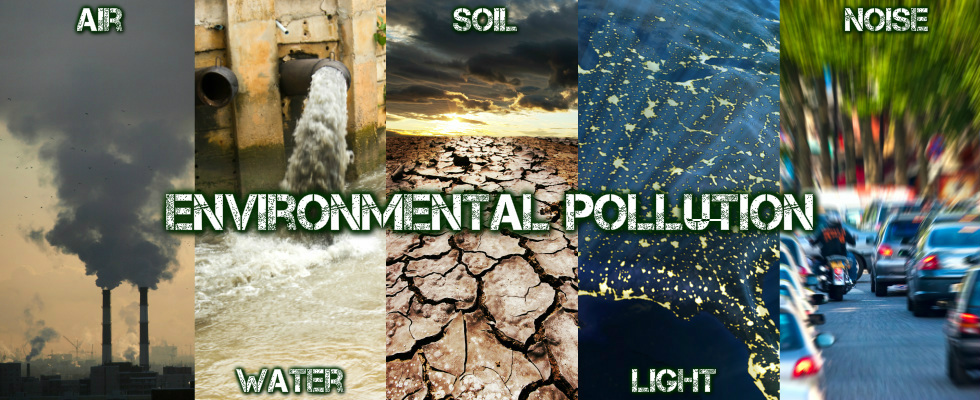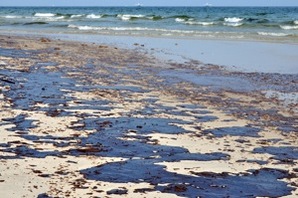
Environmental Pollution
"In an underdeveloped country, don't drink the water; in a developed country, don't breathe the air." ~ Changing Times Magazine

Air Pollution
Both indoor and outdoor air pollution is a major environmental health problem affecting everyone in developed and developing countries alike. Most of the world's population will be subject to degraded air quality in 2050 if human-made emissions continue as usual. In this 'business-as-usual' scenario, the average world citizen 40 years from now will experience similar air pollution to that of today's average East Asian citizen.

Water Pollution
Water is where life began and why life continues, but it is also the world's most threatened essential resource. In addition to the accelerating climatic-driven threat of drought, where water sources all over the world face the threat of potentially drying up as the warming climate accelerates, water is becoming increasingly polluted every year. Polluted, unsafe water is the leading cause of sickness and death with half of the world's hospital beds filled with people suffering from water-related illnesses.

Soil Pollution
Soil pollution occurs when the presence of toxic chemicals, pollutants or contaminants in the soil is in high enough concentrations to be of risk to plants, wildlife, humans and of course, the soil itself. Arable land is turning to desert and becoming non-arable at ever-increasing rates, due largely in part to global warming and agricultural fertilizers and pesticides, lessening the hope that we can feed our booming population.

Noise Pollution
Noise pollution is an unwanted or disturbing sound which can interfere with normal activities for humans and wildlife, such as sleeping, conversation, reproduction, communication, or disrupt or diminish one's quality of life. Excessive noise pollution, from the city streets to the oceans' commercial shipping traffic, can have harmful effects on the humans, plants, animals, trees and marine life constantly exposed to it.

Light Pollution
Light pollution is excessive, misdirected or misused light that can harm human health, wildlife, ecosystems and astronomy. Although light pollution is one of the least known types of pollution, its effects on human health and ecosystems can be just as serious as some of the better-known forms of pollution.



